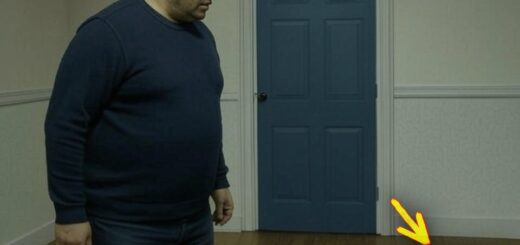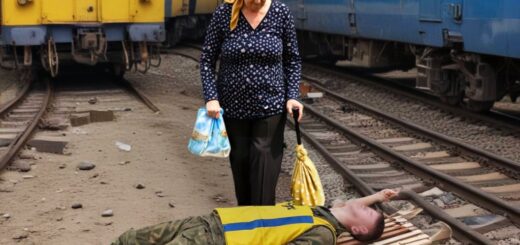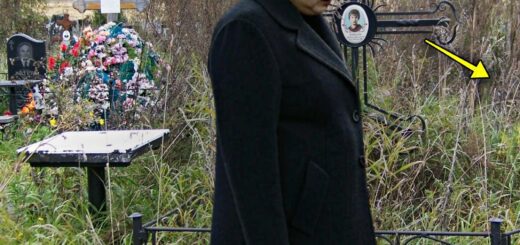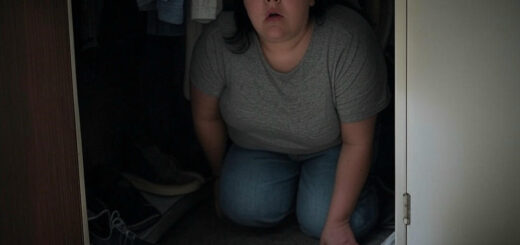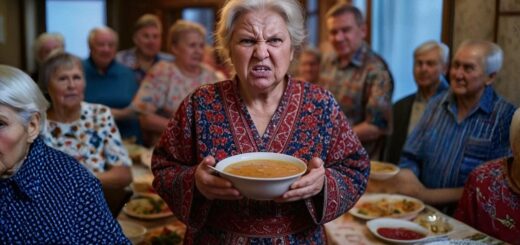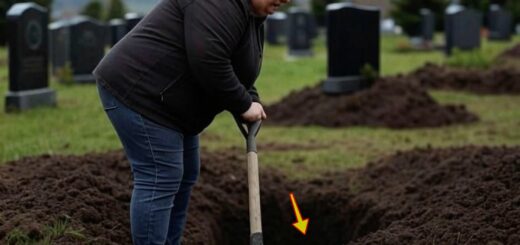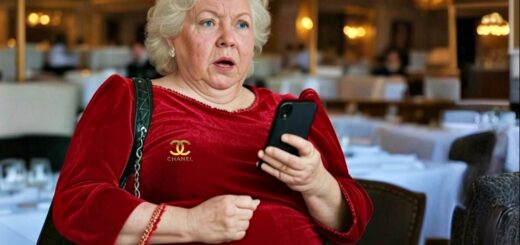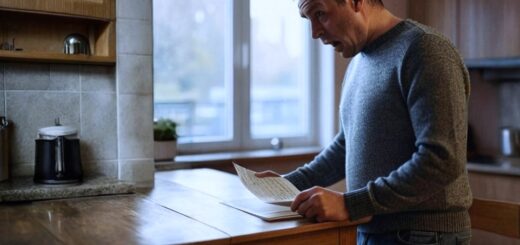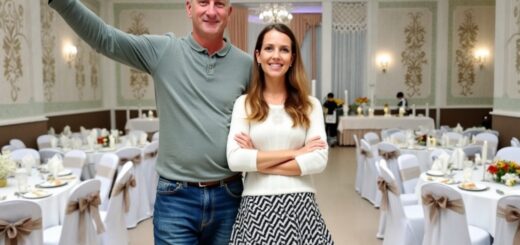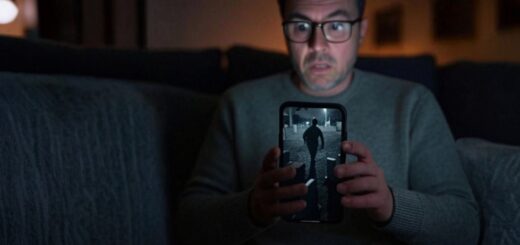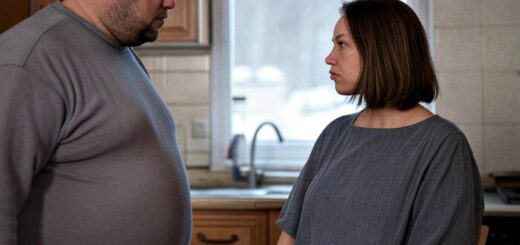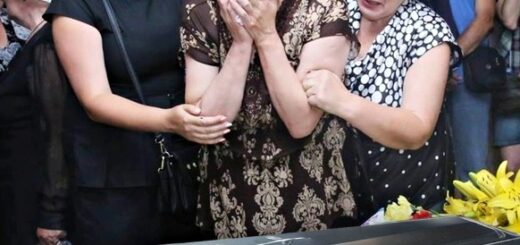When I finally realized my dream and bought a house for my husband and me, that very same day, he declared..
Don’t think this is over, Sarah. I’ll find a way to get back at you.” “We can part peacefully,” I said wearily. “No threats, no blame.”
“Too late for that,” he growled. “You made your choice.” They headed out.
Chloe gave me a final look, her eyes wet with tears—and something else. Gratitude? Hope? Regret? I wanted to tell her my offer stood, that she could always come to me, but I stayed silent. It was her decision, and I couldn’t push her. When the door closed, the house fell silent.
I sank onto the sofa, the tension of the past days draining away. “You did great,” Emma said, sitting beside me, her hand on my shoulder. “Better than I expected.”
“I feel awful,” I admitted. “Eight years. And it ends like this.” “Not eight years lost,” she said gently. “Eight years of growth.
They made you stronger, wiser. You didn’t lose them—you grew through them.” I nodded, though James’s betrayal still stung.
It’d probably never fully fade, just soften with time. “What now?” I asked, looking at Emma. “Now you live,” she said simply.
“In your house, on your terms. You’ll make it the home you always wanted. You’ll build your life, free from others’ demands.”
Almost a year has passed since I stood my ground and asked James and his family to leave my home. The divorce went through without much drama—James, despite his threats, didn’t pursue a lawsuit. Perhaps the notary’s arguments swayed him, or, more likely, his mother decided not to waste money on a losing battle. Either way, I was grateful that chapter closed relatively peacefully.
I learned they rented an apartment in the suburbs. The money from Patricia’s house sale had indeed been sunk into a business—a chain of small coffee shops James tried to launch. But, like many of his past ventures, it flopped. The shops closed within six months, and the investment was lost. That, however, was no longer my concern.
I kept up with the mortgage payments and slowly turned the house into a place where I felt truly at ease. I renovated the living room, updated the old plumbing, and tended to the apple orchard. Every change, every improvement brought me joy—this was my home, my space, my fortress.
An unexpected twist came with Chloe’s arrival. One evening, she showed up at my door with a small backpack, scared but determined. “Aunt Sarah,” she said, her voice trembling, “I want to study in the city. Can I live with you?” It turned out life with James’s family had become unbearable after the business failed. Patricia blamed everyone for her troubles, Laura spiraled into drinking, and James was gone for days, chasing new income sources. In that atmosphere of accusations and poverty, Chloe felt unwanted and out of place. She remembered my offer and found the courage to ask for help.
I couldn’t turn her away. Chloe moved in, we handled the necessary paperwork—Laura, lost in her own issues, didn’t object—and Chloe enrolled in a new school. It was tough at first—new classmates, higher expectations, catching up on missed material. But she proved remarkably driven and bright. By the end of the school year, she was among the top students in her class.
Her presence transformed the house, filling it with life and energy. I, used to solitude, found I enjoyed caring for someone, helping with homework, discussing books and movies, cooking for two. Chloe brought something I’d missed since splitting with James—a sense of family.
Emma became a frequent visitor too. Our bond grew even stronger. She helped with Chloe, shared her wisdom, and supported me through tough moments. We sometimes joked that we’d become a real family—two sisters and a teenage daughter, unconventional but perfectly balanced.
One evening, nearly a year after I confronted James and his family, Chloe and I sat in the garden under an old apple tree. It was a warm spring evening, the tree in full bloom, showering us with white petals. Chloe had just aced a major test and was in high spirits. “Aunt Sarah,” she said suddenly, gazing at the setting sun, “I’m so glad I’m here. That you didn’t kick me out with the others.”
“I’m glad too, Chloe,” I smiled. “You’ve changed my life for the better.” “You know,” she turned to me, “when I called to warn you about Uncle James and Grandma’s plans, I was scared I was betraying my family. But now I know I did the right thing. You can’t just barge into someone’s life, their home, without permission. It’s not fair.”
“You’re wise beyond your years,” I said, looking at her fondly. “Wiser than many adults.” “I’ve just thought about it a lot,” she shrugged. “How it all turned out. What it’d be like if we’d all moved in.
It’d be a nightmare, right? Grandma barking orders, Mom always complaining, Uncle James disappearing for days.” “Probably,” I nodded. “Not a home, but a battlefield.” “And now it’s so nice here,” she breathed in the apple blossom scent.
“Peaceful. You can breathe easy. You can be yourself, not what others want you to be.”
I looked at this young girl, so different from her mother and grandmother, and marveled at fate’s twists. Who’d have thought James’s betrayal would lead to such unexpected happiness? That from all the trials I’d faced, a new family, a new life, would emerge. “You know, Chloe,” I said, watching the sunset, “sometimes what feels like the end is really a beginning.
When the old crumbles, it makes room for the new. And often, that new is better than we could’ve dreamed.” “Like our house?” she asked, and I caught her use of “our.”
Not “your,” but “our.” A small word, but so meaningful. “Yes,” I smiled. “Like our house.” We sat under the blooming apple tree, and I felt a profound calm and certainty.
The house I’d longed for had finally become a true home—not just walls and a roof, but a place of love, respect, and understanding. A place where we could be ourselves. A place that belonged to us, and where we belonged.
The house that was mine became ours. And that was the greatest victory.


